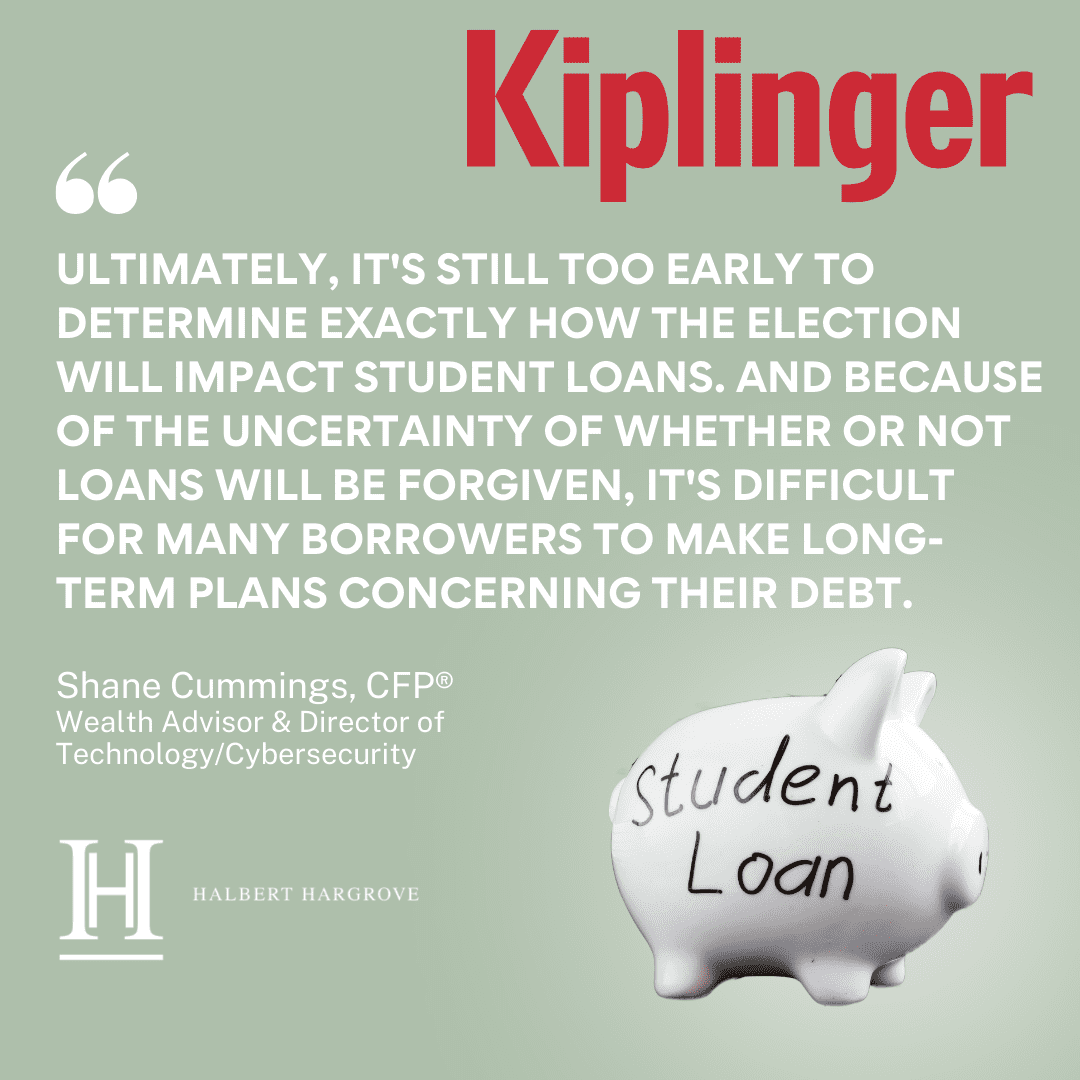By Erin Bendig, Kiplinger, featuring Shane Cummings, CFP®, AIF®, Wealth Advisor & Director of Technology/Cybersecurity
As the 2024 presidential election nears, the fate of student loan forgiveness is at the forefront of many borrowers’ minds, particularly as Vice President Harris and former President Trump have such wildly differing viewpoints. In the first half of this year, federal student loan debt increased by $17.9 billion, bringing total student loan debt in the United States to over $1.75 trillion.
Approximately 43 million Americans have student loan debt as of 2023, with borrowers owing $37,853 on average in federal student loans, according to the Education Data Initiative. And college is only getting more expensive. Between 2000 and 2021, average tuition and fees jumped by 65%, to $14,307 per year from $8,661, according to BestColleges.com. Not to mention the impact of rising interest rates on student loans — 6.53% for the 2024–2025 academic year, the highest rate since 2007–2008.
Student loan forgiveness has become an increasingly hot topic over the last several years, as legal battles over debt relief initiatives continue and leave millions of borrowers in limbo.
In 2023, Biden’s plan for widespread student loan forgiveness, which would forgive up to $10,000 of student loan debt for eligible borrowers, was struck down by the Supreme Court. In August 2024, the administration’s Saving on a Valuable Education (SAVE) repayment plan was temporarily blocked by the court, and on September 5th, U.S. District Judge James Randal Hall issued an order blocking the Biden administration’s latest student loan forgiveness plan, which would have provided debt relief to over 30 million Americans.
One study from Bankrate found that nearly 1 in 5 Americans say student loan debt will have a major influence on their vote in the 2024 presidential election. Considering each candidate has very different ideas on how student loans should be handled, many borrowers are anxious to learn how the election will impact them.
Here’s a closer look at each candidate’s plans regarding student loan debt.
Harris on student loan
The Biden-Harris Administration has implemented several aid programs that have contributed to total debt relief, despite strong opposition. And if Kamala Harris becomes president, she will build on these policies, working to provide widespread student debt relief for millions of borrowers by expanding programs like income-driven repayment plans and Public Service Loan Forgiveness.
“We see a future where every student has the support and the resources they need to thrive,” Harris stated in a speech made in July. “And a future where no teacher has to struggle with the burden of student loan debt.” She noted that the Biden-Harris administration has forgiven student loan debt for nearly five million Americans. Nearly $160 billion in federal student loan debt has been forgiven since Biden took office, according to the U.S. Department of Education.
The administration’s efforts have been focused on targeting areas for forgiveness for borrowers who are most in need, Stacey MacPhetres, senior director of education finance for EdAssist by Bright Horizons told Kiplinger. Borrowers most in need have included those facing financial hardship, holding balances greater than the initial amount borrowed due to accrued interest, those who are eligible for forgiveness but have not yet applied, those who have been in repayment for 20 years and borrowers who attended institutions that show low financial value.





